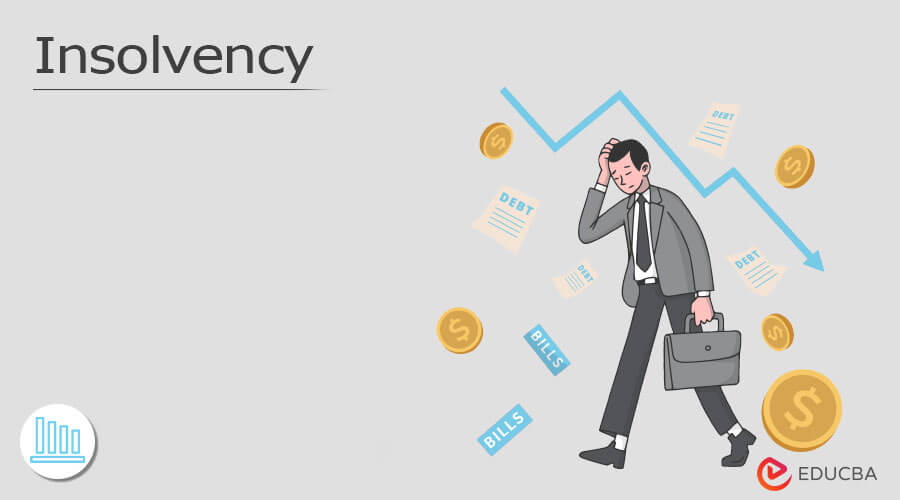Insolvency Practitioner Fundamentals Explained
Wiki Article
Insolvency Practitioner - The Facts
Table of Contents6 Simple Techniques For Insolvency PractitionerAll About Insolvency PractitionerInsolvency Practitioner Things To Know Before You BuyThe Best Strategy To Use For Insolvency PractitionerThe Single Strategy To Use For Insolvency PractitionerAll About Insolvency PractitionerAll About Insolvency Practitioner
Bankruptcy is when liabilities are more than the value of the firm, or when a debtor can not pay the debts they owe. A business can come to be bankrupt due to a variety of situations that result in inadequate capital. When confronted with insolvency, an organization or person can contact lenders straight and restructure debts to pay them off.
Bankruptcy can bring about bankruptcy procedures, in which legal activity will certainly be taken against the insolvent person or entity, and properties. Insolvency Practitioner might be liquidated to pay off impressive debts. Company owner may call financial institutions directly and restructure financial obligations right into more convenient installments. Financial institutions are usually amenable to this strategy since they intend to be settled and avoid losses, even if the payment is on a delayed schedule.
The proprietor produces a proposal describing exactly how the financial debt may be restructured making use of expense reductions or various other prepare for assistance. The proposal reveals financial institutions how business might generate sufficient cash money flow for successful procedures while paying its financial debts. Normally, a forgiven debt may be taken into consideration income by the Internal Profits Service (IRS).
The 6-Minute Rule for Insolvency Practitioner
When an organization needs to pay increased costs for items and services, the firm passes along the cost to the consumer. Instead than pay the boosted expense, many customers take their organization somewhere else so they can pay less for a product and services. Shedding clients leads to losing earnings for paying the company's financial institutions.Business might end up paying huge quantities of cash in problems and be overcome operations. When operations cease, so does the business's revenue. Absence of income results in overdue bills and financial institutions asking for cash owed to them. Some business come to be financially troubled due to the fact that their products or services do not develop to fit customers' altering demands.
The smart Trick of Insolvency Practitioner That Nobody is Discussing
Costs surpass profits and costs stay overdue. Types of bankruptcy include cash-flow bankruptcy and balance-sheet bankruptcy. Cash-flow insolvency happens when a company has the properties to cover their financial debts yet they are in the wrong form, such as real estate rather of fluid funds. Balance-sheet bankruptcy, on the other hand, shows an absence of possessions in any type of type to cover debts.The IRS states that an individual is insolvent when the complete liabilities surpass complete assets. Insolvency Practitioner. A personal bankruptcy, on the other hand, is an actual court order that shows just how a bankrupt person or service will certainly repay their lenders, or just how they will certainly sell their assets in order to make the repayments
Fascination About Insolvency Practitioner
When a company or individual is bankrupt, they can not meet their economic commitments. Bankruptcy is not the exact same as bankruptcy, although a company that has actually become financially troubled might submit for personal bankruptcy. Bankruptcy is the state of not being able to pay your commitments while personal bankruptcy is a lawful process to discharge your debts.click to find out more Understanding the aspects that can click site bring about bankruptcy, such as overspending, can aid you prevent insolvency and its repercussions.
Our Insolvency Practitioner Diaries
It is well known that directors and policemans of companies (and supervisors of limited obligation firms) owe fiduciary responsibilities to their organizations and their shareholders (or participants). These fiduciary obligations are specified by state laws and, though there are variants from one state to another, they typically include a task of loyalty and an obligation of treatment.The obligation of treatment calls for supervisors and policemans to work out diligence, to make enlightened decisions, and to act in great faith so that their activities remain in the most effective rate of interest of the business. Past the scope of this conversation, some states permit these duties to be limited either by so noting in the business records or conforming with various other needs.
Some Ideas on Insolvency Practitioner You Should Know
:max_bytes(150000):strip_icc()/accountinginsolvency_definition_final_primary_1013-ec9f30044d93461fb78191b77bbcbd17.jpg)
Take care concerning offering shareholders preferential treatment at the expense of financial institutions (e.g., authorizing and funding a reward or a stock redemption). Beware about favoritism in between classes of shareholders. Clear up initiatives to discover all the facts prior to taking a specific course of action; supervisors ought to truly believe that any choices made are in the most effective interests of the company in its entirety (i.e., decisions will certainly be reviewed in knowledge because of the effect of such actions on the corporation).
In any kind of personal bankruptcy or bankruptcy case, repayments made to particular creditors at the cost of various other financial institutions can be clawed back, especially if there is some link between the firm and the financial institution. Take into consideration suggesting at an annual shareholder meeting (or any type of other meeting of see this here stockholders) a resolution affirming that all prior business choices and activities taken by the directors and policemans of the company were absorbed excellent confidence after a workout of sensible treatment.
The smart Trick of Insolvency Practitioner That Nobody is Discussing
Totally disclose any personal or company relationships with celebrations beyond of transactions involving the company to prevent the appearance of a dispute of interest. In evaluating possible fund elevating deals or a sale of properties of the struggling firm, know that these transactions may be looked at later on because of any succeeding growth of supervisors' fiduciary tasks to include financial institutions.Report this wiki page